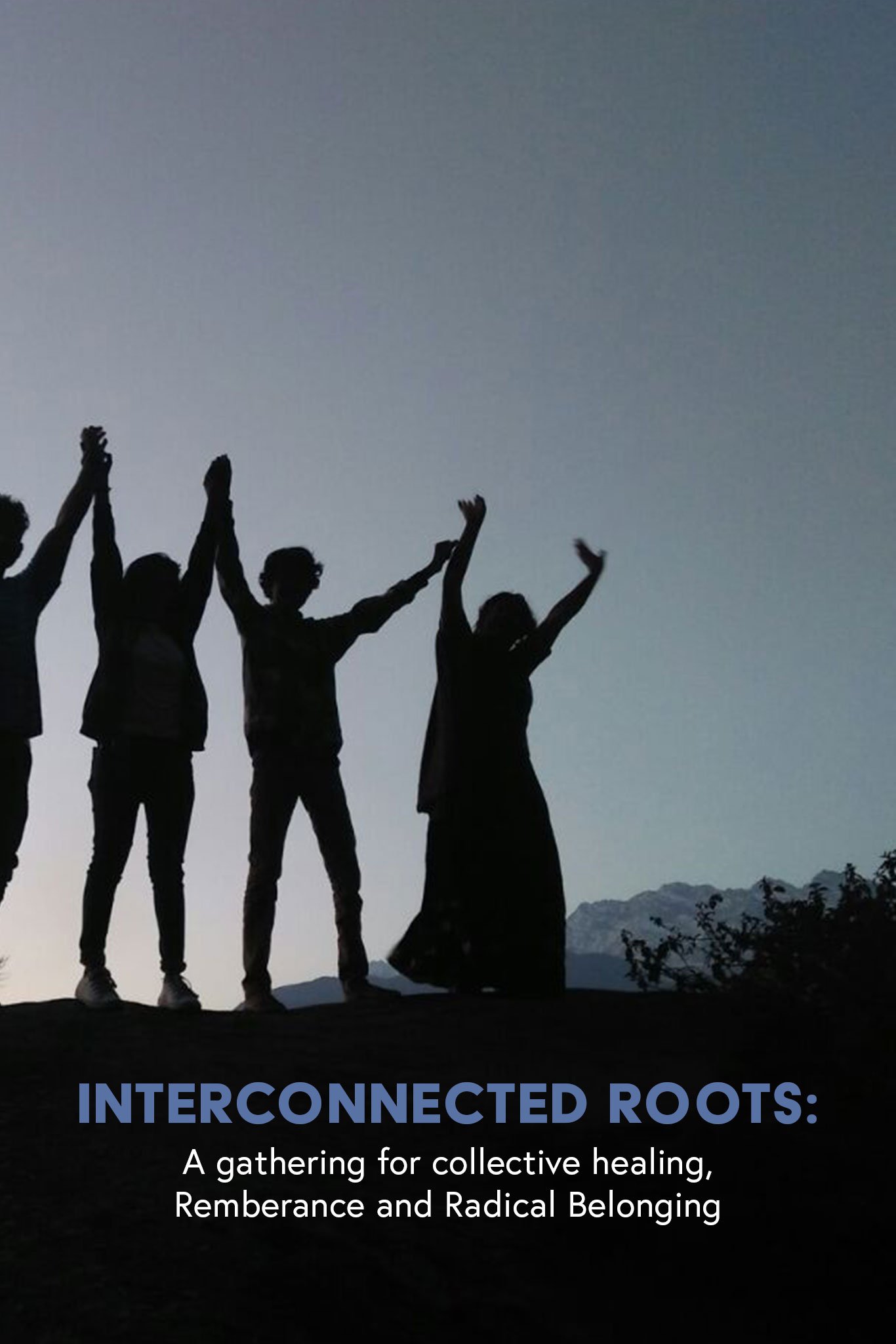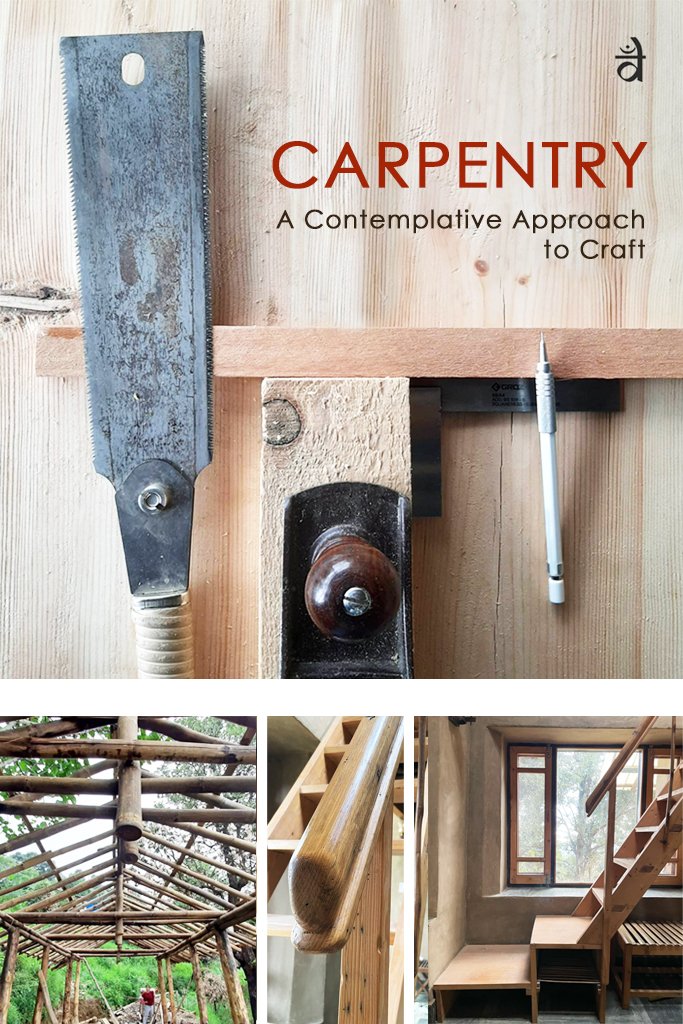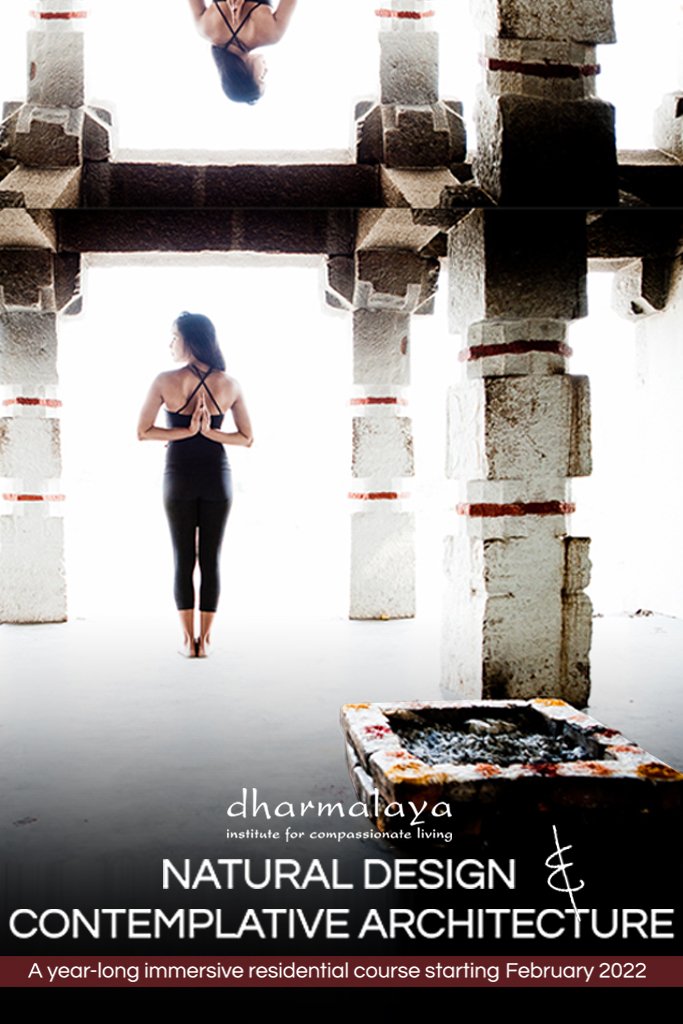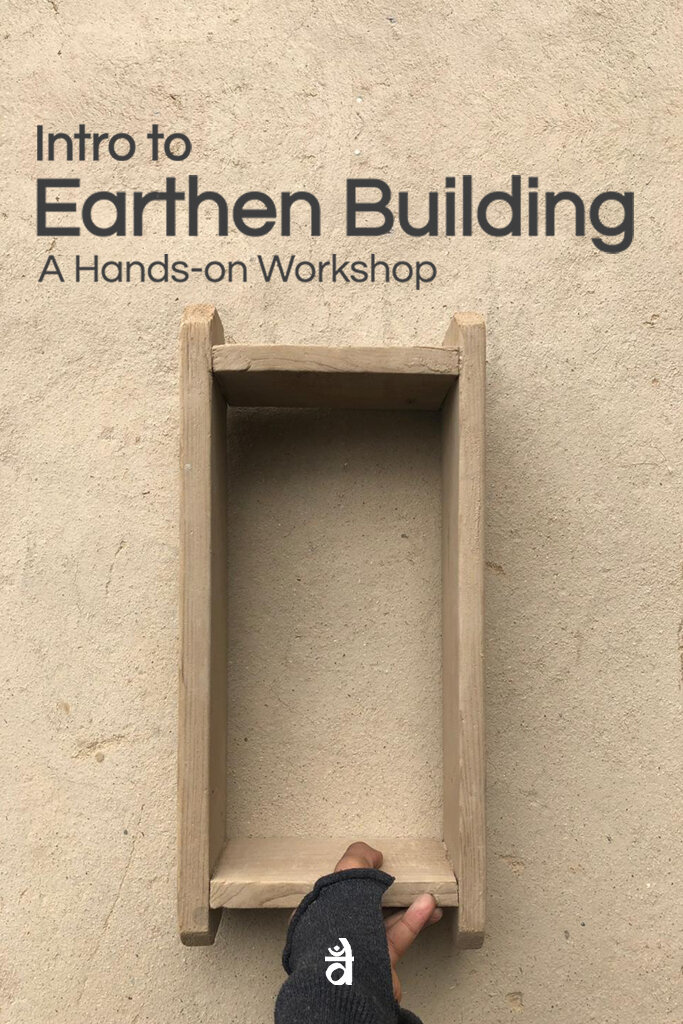
NATURAL BUILDING
Nature built us to thrive by living in harmony with her. The arts and sciences of natural building are humanity’s endeavour to learn from nature’s example, to create human habitats that reflect nature’s brilliantly functional, supremely beautiful and inherently sustainable design.
WHAT IS NATURAL BUILDING AND WHY DOES IT MATTER?
‘The natural environment sustains the life of all beings universally.’
— H.H. the Dalai Lama
‘Natural building’ is not just a technique or a building material; it is the harmonious union of materials and methods with sensitive observation and philosophical reflection. It means not only using natural materials (such as earth, stone, bamboo, etc.) in construction, but also learning from nature so that we can build the way that nature herself builds, such that the entire life cycle of a building — from idea to material sourcing to construction to its inevitable decomposition — is in harmony with nature.
Why all the current excitement about natural building? Several decades of experimentation with modern materials and techniques — and witnessing their drawbacks and environmental impacts — has shown that there are many respects in which natural building materials and methods are demonstrably superior to conventional materials and methods for most common use cases.
› Read more about the importance of traditional natural building
A few key benefits of natural building:
Less disruptive to the earth and its ecosystems and wildlife
Healthier to live in (thanks to breathability, reduced chemical exposure, etc.)
Lower embodied energy (less nonrenewable energy used in construction)
Sourcing building materials onsite or nearby reduces carbon cost as well as transportation expenses
Often superior thermal properties (which in turn requires less energy for cooling/heating)
Beautiful features and finishes can be achieved without use of toxic or environmentally harmful materials.
Sustainable throughout life cycle (natural buildings, when they reach their end, return to the earth as compost)
LEARNING NATURAL BUILDING AT DHARMALAYA INSTITUTE
Hands-on learning with a holistic, contemplative approach
Several distinct features come together to make Dharmalaya Institute an ideal place to learn about natural building:
Experiential, hands-on approach
Learn it by doing it, working alongside experienced artisans who want to help you learn and can guide you in your development of skill and understanding.
Holistic orientation
Our natural building programmes examine the whole person engaging with whole solutions, shining as much light on the builder as we do on the building.
Supportive environment
We are here to support your growth as a sensitive and skillful natural builder, and as an effective agent of positive action in our world.
Immersion in nature
The best way to learn about nature is to live with it intimately. Our residential programmes provide the perfect opportunity for the kind of deep, long-term immersion in nature that gives birth to profound understanding.
Examples and case studies
Our Himalayan eco-campus is a showcase for many possible solutions for natural building, and you’ll be living in them, using them daily, gaining experience and insight one can’t find in books.
OUR NATURAL BUILDING PROGRAMMES
Dharmalaya Institute frequently offers workshops and trainings in various aspects of natural building, including adobe and stone masonry, cob, carpentry, bamboo work, and more. See our Upcoming Programmes for details.
People with the most passionate interest may want to consider our long-term residential course, ‘Natural Design and Contemplative Architecture’. For details on that course, see our Immersive Courses page.
Architects (both practicing and students alike) who want to deepen their knowledge of the theory and practice of natural building may also be interested in our Internship in Vernacular Eco-Architecture, a programme developed jointly by award-winning eco-architect Didi Contractor and Dharmalaya Institute cofounder Mark Moore.

"Whatever good things we build end up building us."
— Jim Rohn
LEARN: COMPASSIONATE LIVING | DESIGN & ARCHITECTURE | NATURAL BUILDING | ORGANIC FOOD GROWING | MEDITATION & YOGA | PERSONAL & PROFESSIONAL DEVELOPMENT























